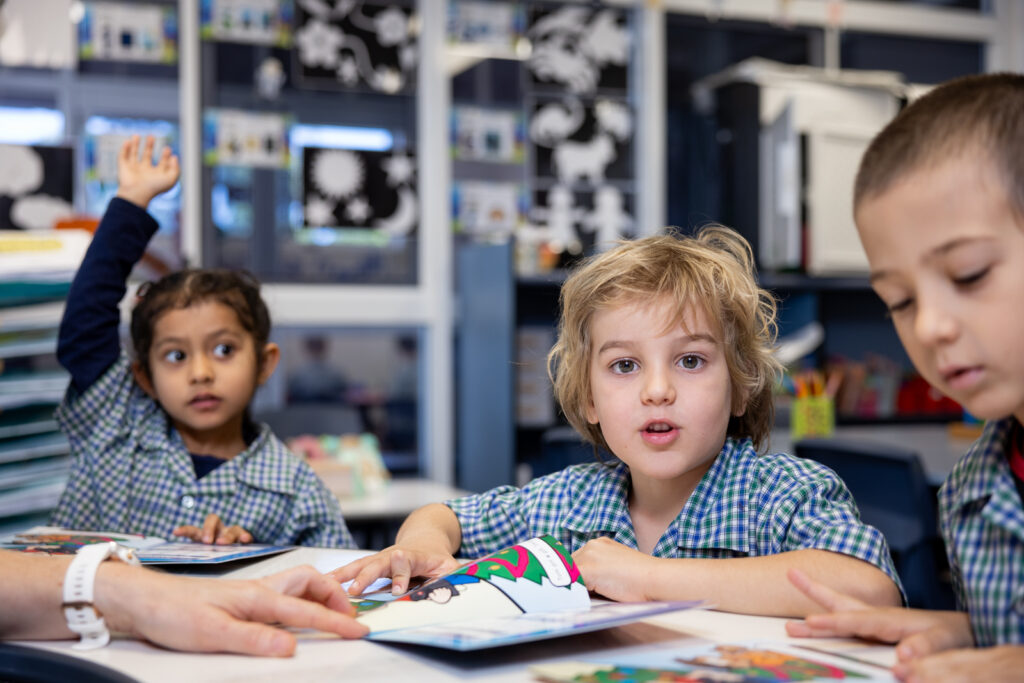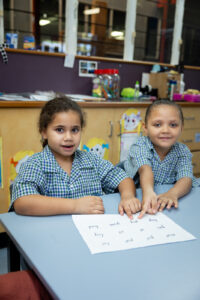
When is my child eligible for Prep?
| Child’s Birth Date | Eligible for Prep Year in |
|---|---|
| 1 July 2016 to 30 June 2017 | 2022 |
| 1 July 2017 to 30 June 2018 | 2023 |
| 1 July 2018 to 30 June 2019 | 2024 |
| 1 July 2019 to 30 June 2020 | 2025 |
| 1 July 2020 to 30 June 2021 | 2026 |
| 1 July 2021 to 30 June 2022 | 2027 |
Early entry to Prep
An amendment to the Education Act has allowed for the possibility of early entry for some students who will turn five by July 31st in the year they are in Prep, however that entry is conditional on the Principal also being satisfied that they are ready for schooling in terms of:
- aptitude and ability; and
- social and emotional competence; and
- physical development; and
- level of knowledge and understanding
This is not a mandatory change for all children born in July and it is certainly not compulsory to send your child to Prep if he or she turns five during July.
Delayed entry to Prep
Delayed entry to Prep is an option which may be considered in specific circumstances and where it is in a child’s best educational interests.
Parents may delay their child’s entry to Prep (and subsequently Year 1) if they feel that the child is not ready to start school. For example, the child is not ready to cope with the social and emotional demands of schooling, or has delayed development.
No formal documentation or approval is required for delayed entry to Prep. If you have questions or concerns about your child’s readiness for Prep you can speak with your child’s Kindergarten teacher or the Principal of the school where you plan to enrol your child for Prep.
Getting ready for Prep
Getting ready for the first year of schooling – Prep – is a big life-changing event in the lives of young people and their parents/carers!
Click this link for some good advice for those about to step into school for the first time: https://www.cns.catholic.edu.au/our-school-communities/parent-engagement/getting-ready-for-prep/
 What is Prep?
What is Prep?
The Preparatory Year of full-time schooling (Prep) was introduced into all Queensland schools in 2007. Prep is the first compulsory year of school and provides the foundation for your child’s education.
About Prep
All Queensland children are eligible to attend full-time Prep from the beginning of the school year in which they will reach the age of 5 years by 30 June. Children whose birthday is in July through to December commence Prep at the beginning of the school year after their 5th birthday.
Prep is the first year of school and provides the foundation for your child’s education. It is a full-time program held in primary schools. Children attend Monday-Friday for the full school day.
Prep teachers use the Foundation Year of the Australian Curriculum—to guide children’s learning. The Foundation Year in the Australian Curriculum refers to the year before Year 1. In Queensland this is called Prep. For further information visit the Australian Curriculum Website at www.australiancurriculum.edu.au
When children start Prep they move to a more structured learning environment, but they continue to learn through play. During play children make decisions, solve problems, develop thinking and teamwork skills, communicate, and develop a positive sense of themselves.
Developing the whole child
Families starting their child’s schooling in the Catholic tradition know that Catholic schools are committed to the growth of the whole child by offering developmentally appropriate programs which address children’s needs – spiritual, intellectual, physical, cultural, social and emotional. Faith, spiritual and values development is integrated into the Prep curriculum in keeping with the ethos and values of Catholic education.
The Prep program promotes the development of independence and acknowledges that children arrive at school as competent and capable learners who have been learning since birth. The year builds on your child’s learning at home and in other places like kindergarten and child care.
Facilities
Good Counsel Primary provides quality, specialised learning areas and equipment to accommodate two Prep classes.
A safe and caring environment
Catholic schools aim to provide special care and attention to all students, staff and families in the school community.
Each child’s unique beauty and gifts are fostered. Child protection matters are taken seriously, and practices and protocols are in place to ensure Catholic schools are safe places that not only comply with regulations but move beyond mere compliance to prevention.
Prep classrooms in Catholic schools nurture right relationships. Through social emotional learning, children are supported in the development life skills in emotional resilience, confidence, getting along, persistence, and organisation.
In close partnership
Our schools see education as a partnership between schools and families. Parents are welcomed as members of the school community and opportunities are provided to share in the school experience. Close communication between school and home is a priority. Prep teachers value partnerships with families, carers, communities and professional colleagues in order to develop supportive learning environments for students.
What will children learn?
In Prep children learn in many different ways including play, organised games, and investigation. They develop important life skills by working with other children, Yr 6 Buddies and adults. Prep makes connections between school and what your child learns at home and in early childhood education and care.
Prep helps your child develop:
- a positive approach to learning
- independence and confidence
- thinking and problem-solving skills
- language skills
- early literacy and numeracy
- physical abilities
- visual arts, music, drama and dance
What will they do?
- investigate interests and plan with their teacher about the things they might do
- make choices while designing and making things
- sing, dance and paint
- listen to stories
- play games indoors and outdoors
- use iPads and computers to draw pictures, make signs
- learn about size, shape, weight and measurement as they construct things indoors and outdoors
How can I get involved?
- share information about your child with the teacher (always treated confidentially)
- chat with your child about what they’re doing at school
- check Seesaw for photos of your child’s experiences
- visit the classroom for a brief chat or to take part in daily activities or special events
- read together and talk about story books, factual books and rhymes as well as about everyday items such as signs, notices, letters, catalogues, magazines, TV guides, food packaging and bills
- involve your child in family activities that investigate mathematical ideas, e.g. cooking, setting the table, matching socks, sharing a meal
- encourage your child to use ‘junk’ materials for drawing, making patterns, and building things


